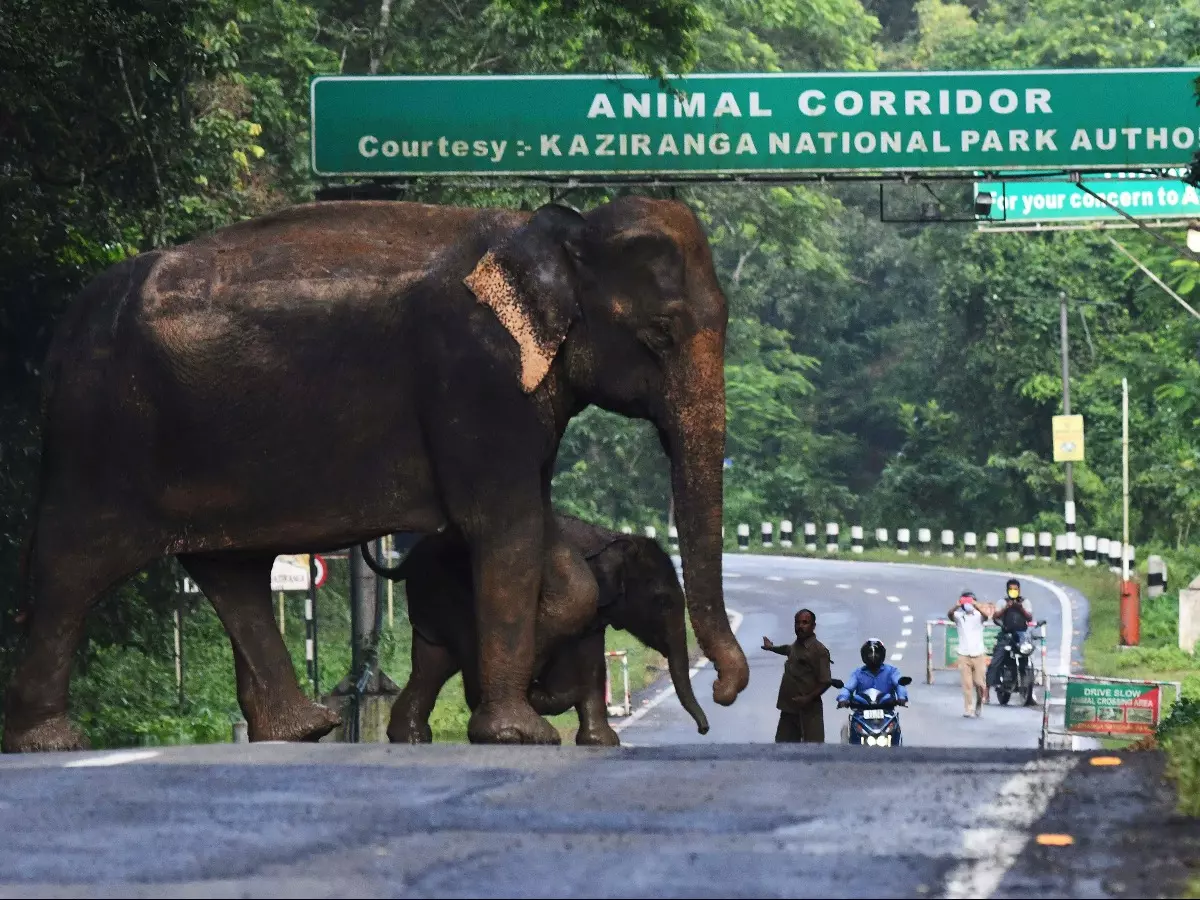Remove All Illegal Constructions In Wildlife Corridors Of Kaziranga: What SC Told Assam Govt
A Central Empowered Committee (CEC), constituted by the Supreme Court has asked the Assam government to remove all illegal constructions along the nine elephant corridors of Kaziranga National Park and Tiger Reserve (KNP).

A Central Empowered Committee (CEC), constituted by the Supreme Court has asked the Assam government to remove all illegal constructions along the nine elephant corridors of Kaziranga National Park and Tiger Reserve (KNP).
The SC panel in a letter to the state Chief Secretary on October 6, said an action taken report should be submitted to the panel within four weeks.
 AFP
AFP
The directive was sent after the CEC received a report last month, from Hemen Hazarika, scientist and head of the Guwahati-based integrated regional office of the minister of environment, forest and climate change, which detailed the illegal constructions on the wildlife corridors.
"Inspection was done and at field level after traversing the entire 8 (eight) stretch of animal corridors, where it was found that there has been illegal construction all along. Hence, there has been 'contempt of hon'ble Supreme Court order dated l2.04.2019¡±on I. A. No. 42944/20)9 on WP(C) 202/1995' which had other than banning all types of mining, had also 'not permitted any new construction including on private lands which form part of the 9 identified animal corridors'," the report by Laetitia J. Syiemiong, Deputy Inspector-General of Forest (Central) had said.
 AP
AP
The official said that the Supreme Court earlier barred new construction on private lands that form part of the nine identified animal corridors of Kaziranga, which is home to more than 2,400 one-horned Indian rhinos.
The apex court in its 2019 order had ordered that "no new construction shall be permitted on private lands which form part of the nine identified animal corridors".
All kinds of mining disallowed
SC had also disallowed all kinds of mining activities along the Kaziranga National Park and catchment area of rivers originating in Karbi Anglong Hills in Assam.
"Apart from illegal constructions, the greatest eye-sore and also a threat to the animals of KNP & TR is the presence of trucks, etc. In the recent past it has been observed that trucks, tankers and other vehicles are stopping to park in road sides from Jakhalabandha to Bokakhat and creating unnecessary hindrance to wild animal movement from the national park to Karbi Anglong Hill side. Because of this, the number of hotels and dhabas are increasing day by day and during checking, it found that these dhabas are chopping firewood from the trees of Karbi-Anglong Hill side illegally," the letter said.
 BCCL/ Representational Image
BCCL/ Representational Image
It also said that there were more than 500 trucks and vehicles, during the inspection, that were utilising water from streams and rivers and rivulets originating from Karbi-Anglong Hill ranges for bathing by drivers and handymen and washing of vehicles, polluting the water flowing into the Kaziranga national park.
"Oil and grease from automobiles garages, waste water from vehicle washing stations, sewage water coming from dhabas and hotels is entering into the Diffalo River which is the lifeline of Kaziranga. Dumping of garbage on the animal corridors and noise pollution due to movement of vehicles is deteriorating the environment of the park. As per the Central Empowerment Committee's 2019 report submitted to the Supreme Court, parking of all types of vehicles on the nine animal corridor areas of NH-37 of Kaziranga National Park is strictly prohibited," the letter said.
For more on news and current affairs from around the world please visit Indiatimes News.
